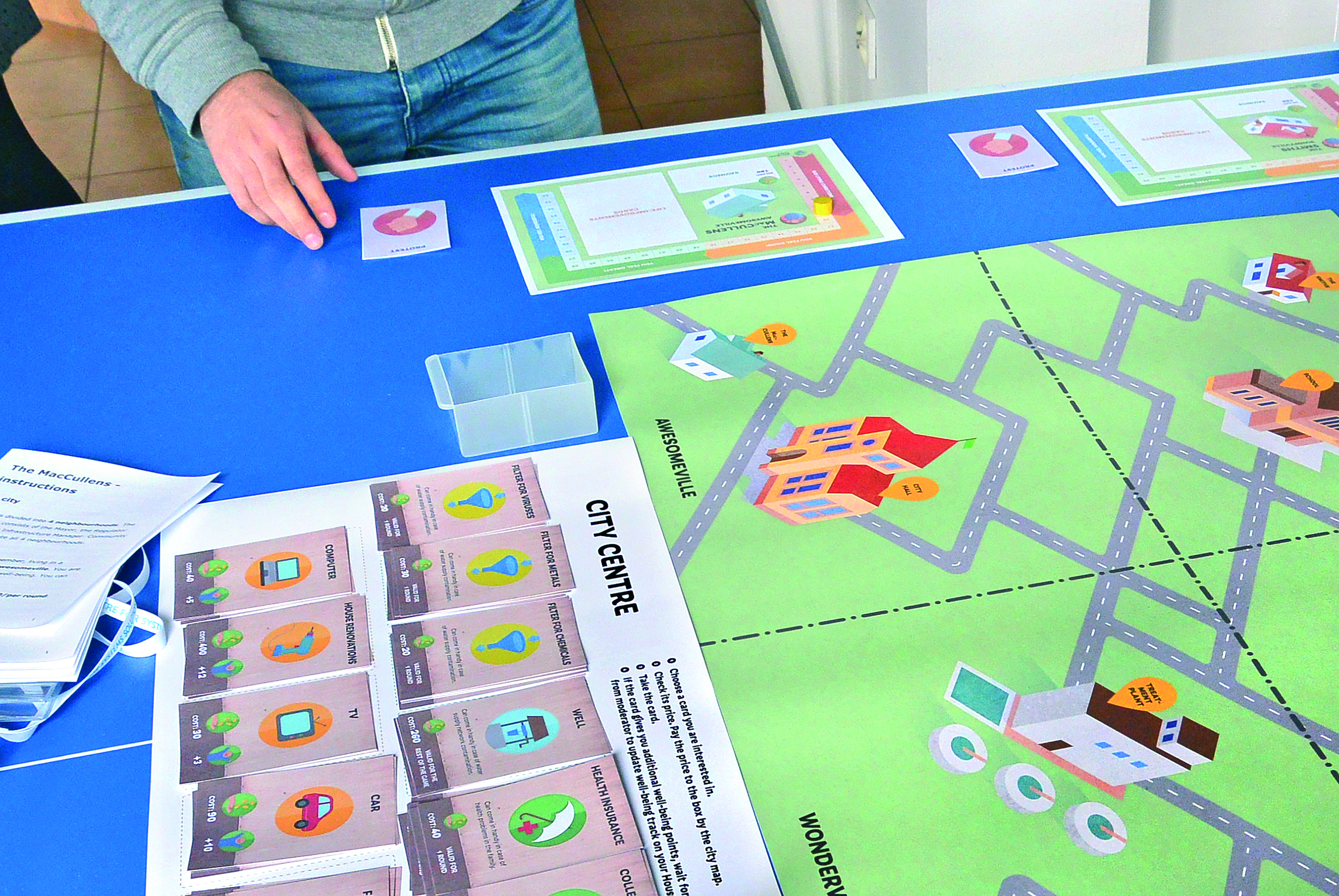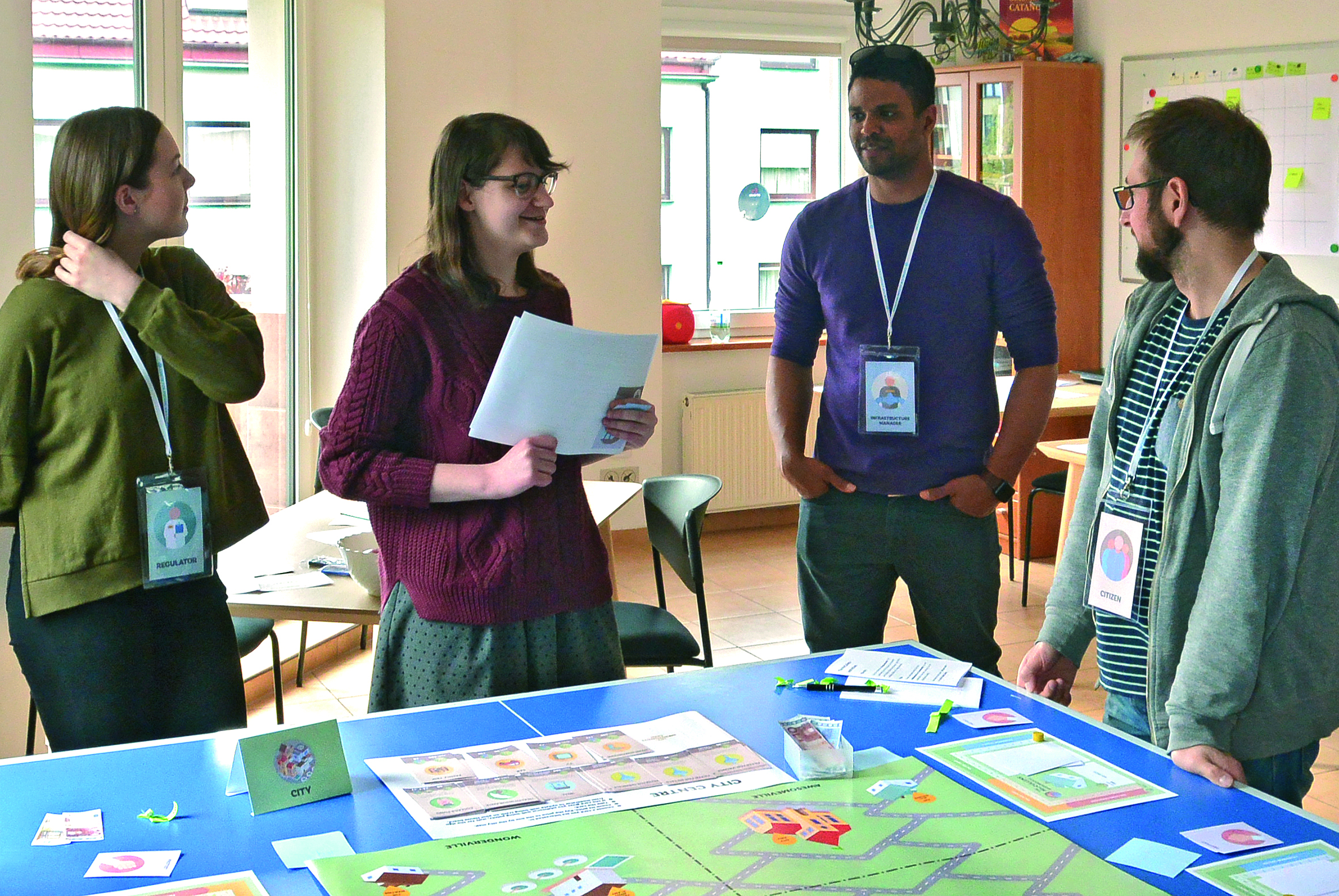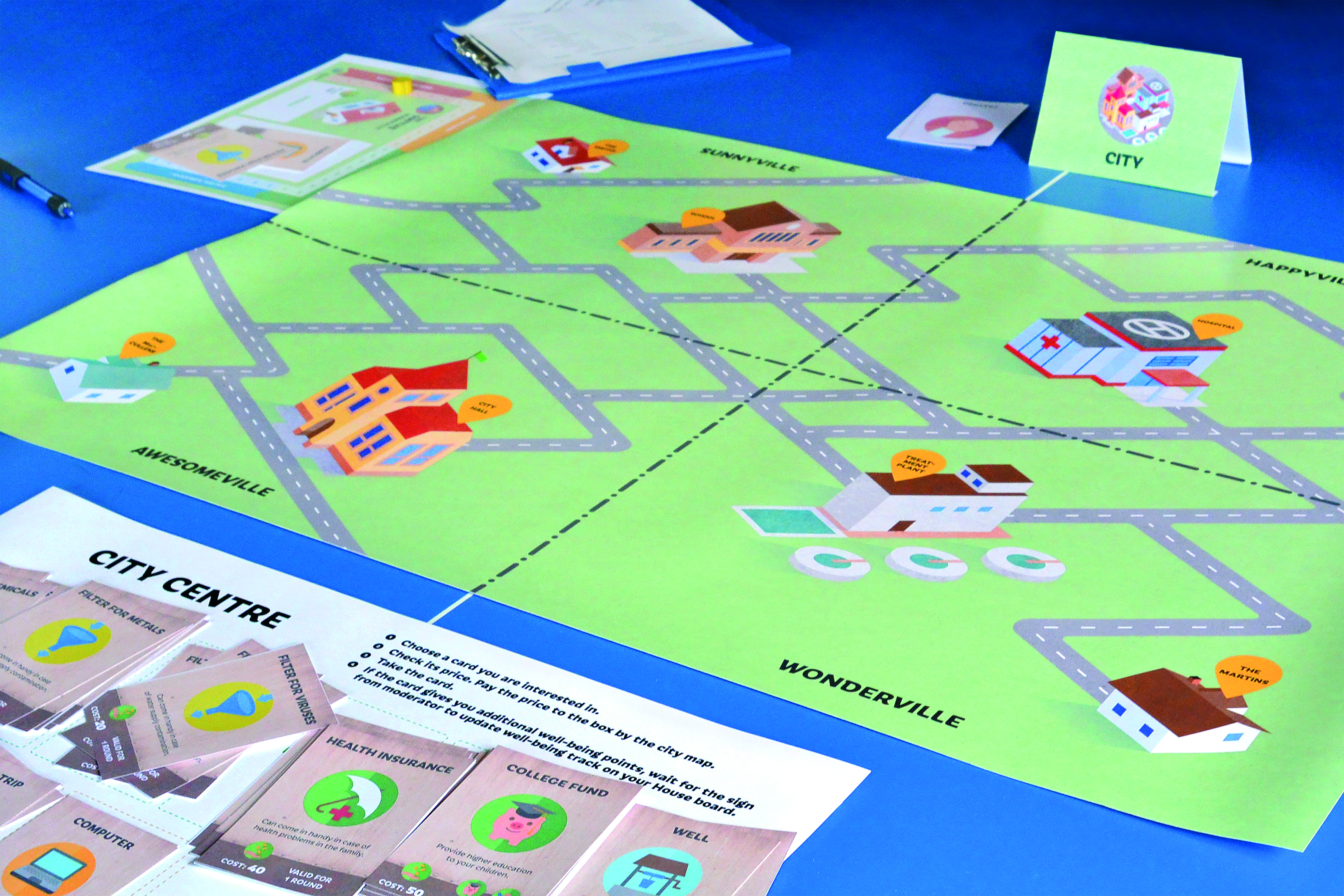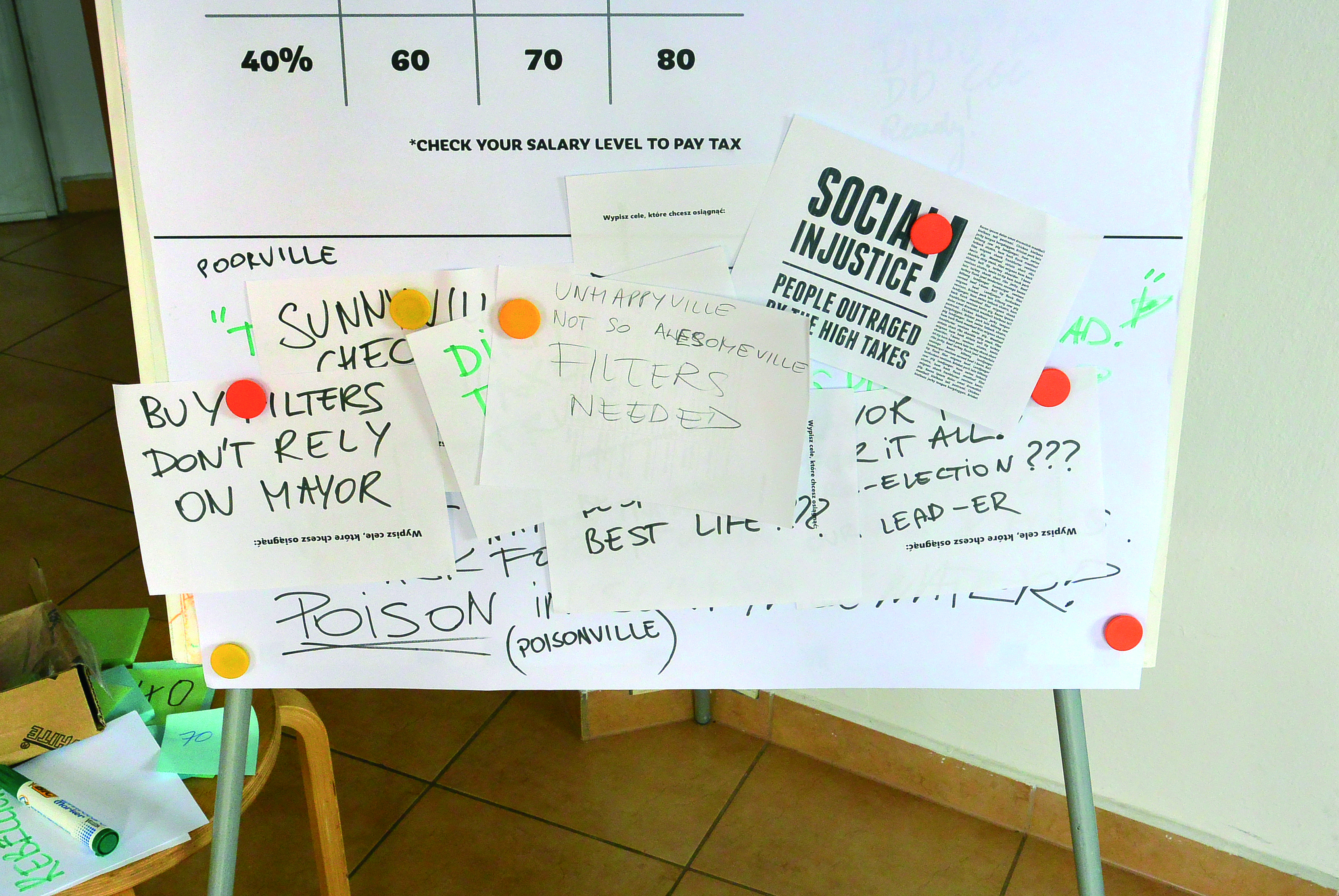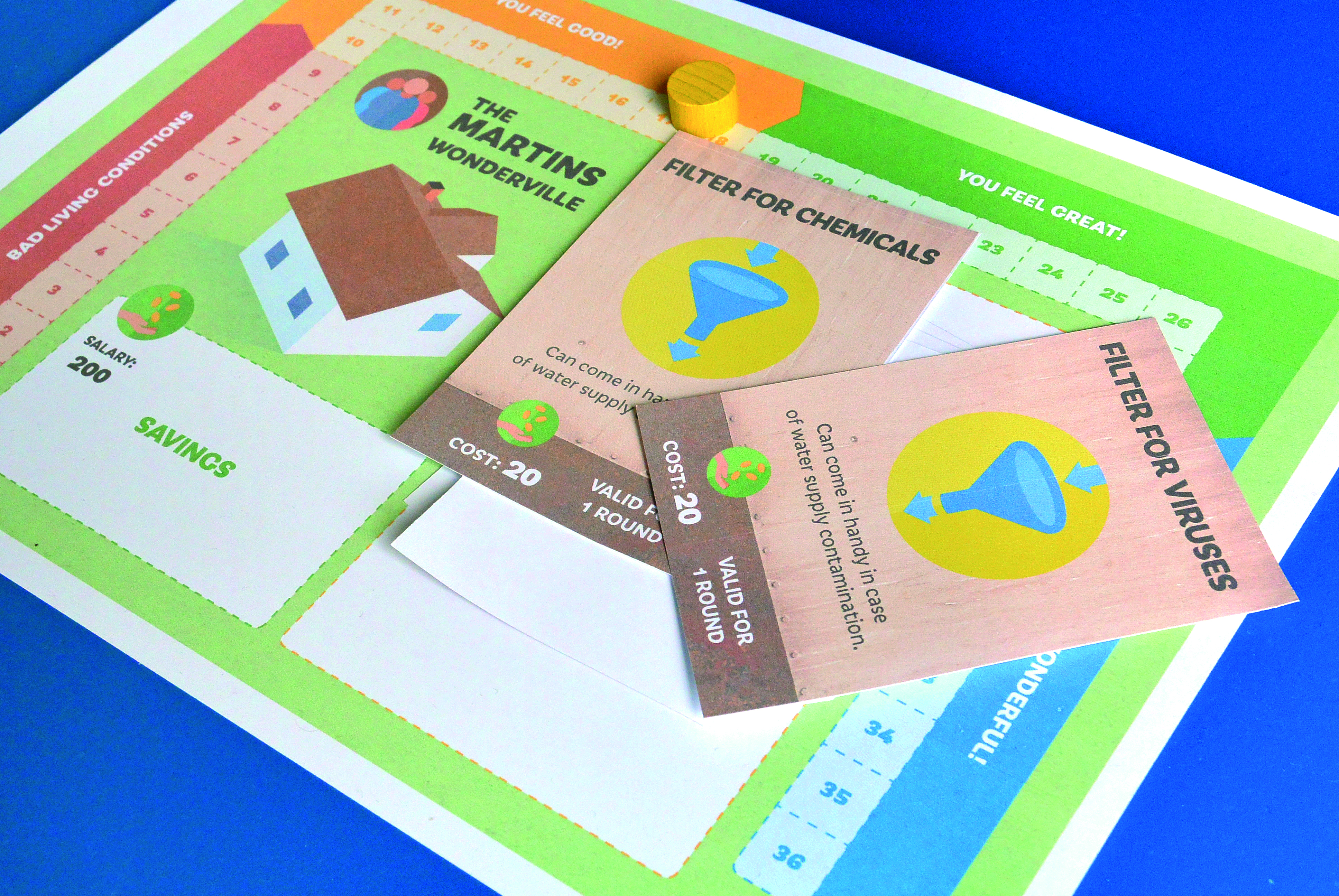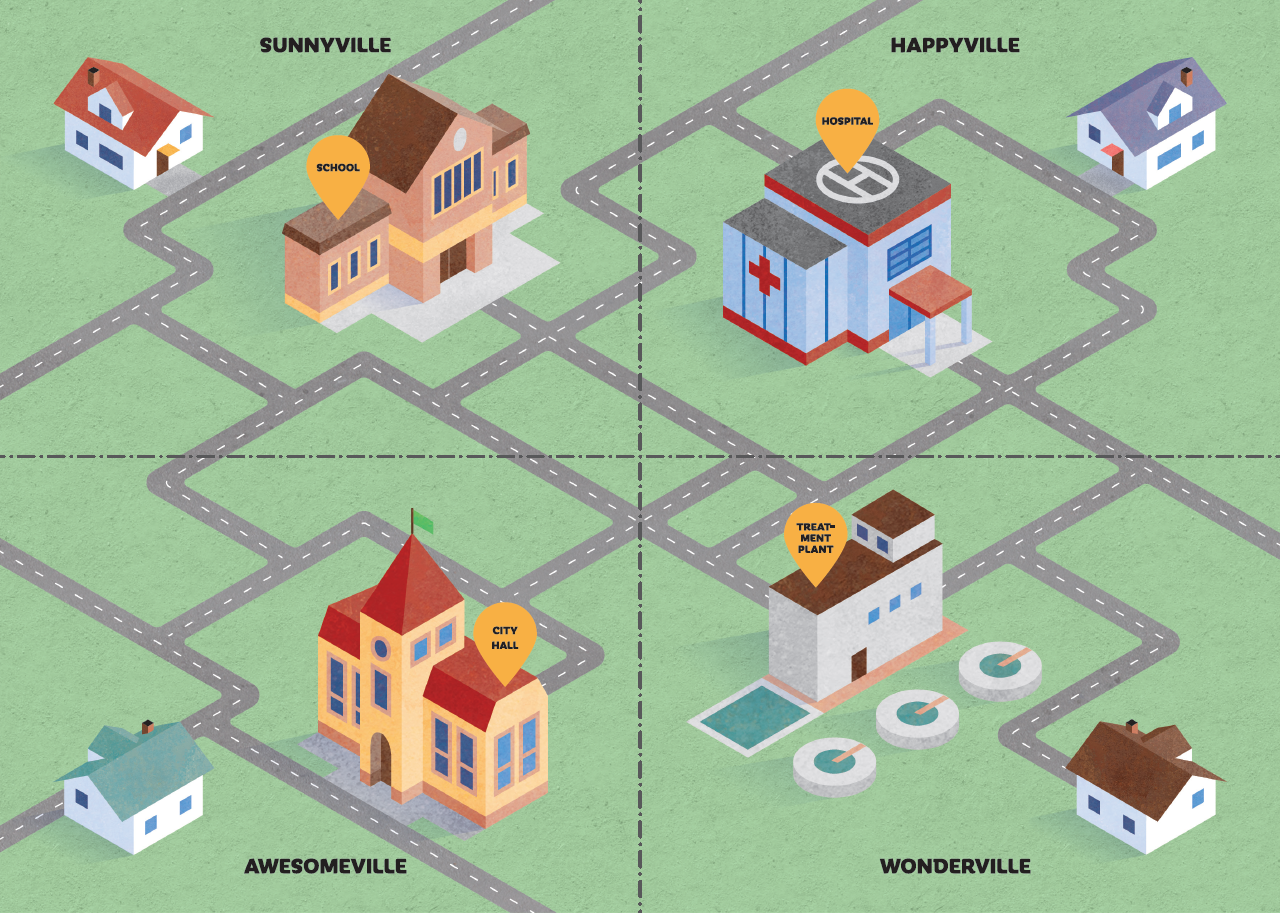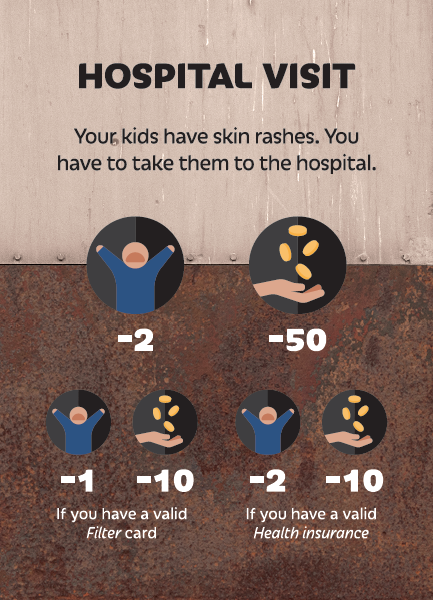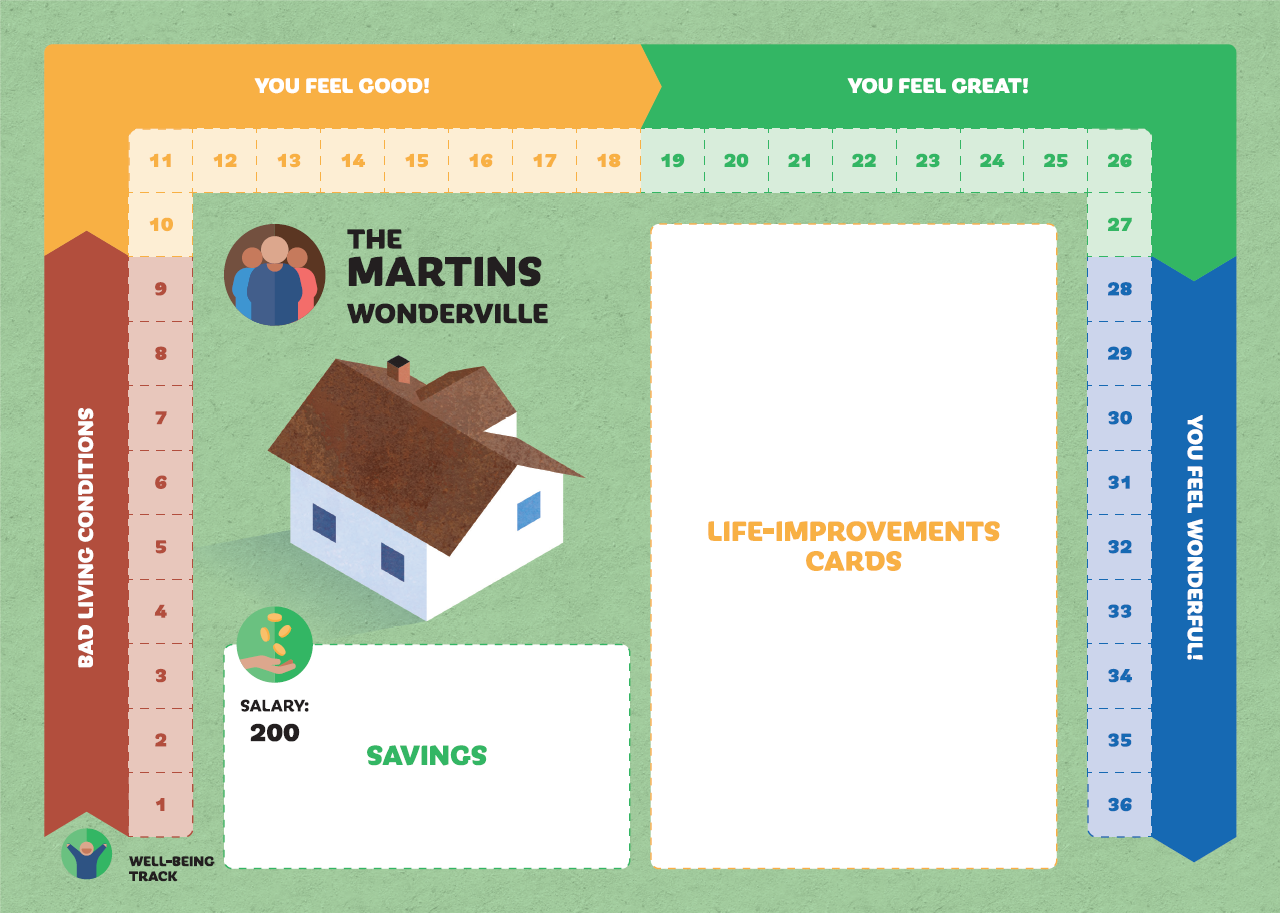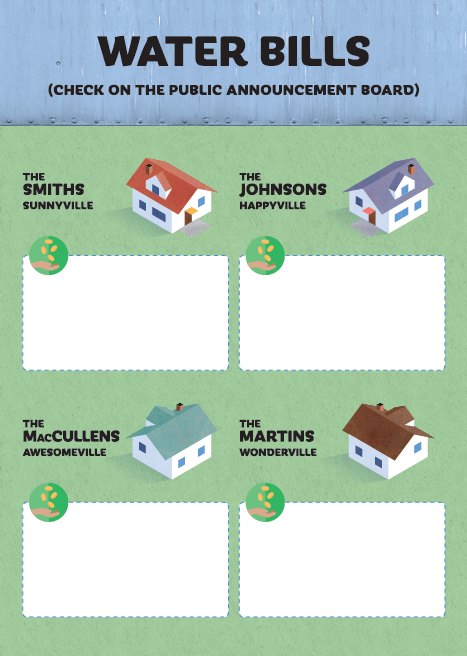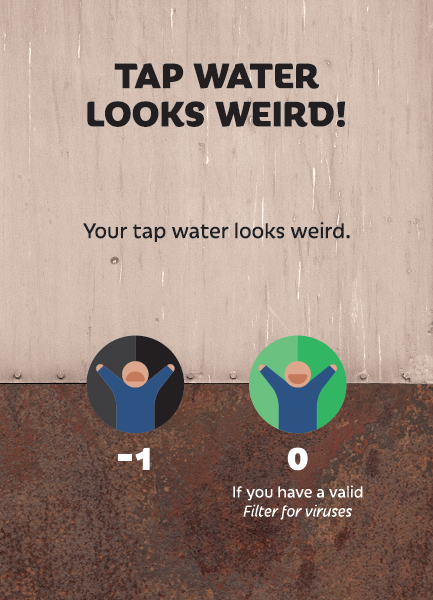Gameplay
Players take the roles of local authorities, infrastructure managers and citizens, whose needs create a complex net of interrelations. The authorities, under the constant pressure from citizens, gather resources through taxes and then negotiate what water solutions the budget should be spent on.
Often it happens that promising ideas targeted at root-causes of a problem and long-term risk reduction meet with opposition from these players whose priorities or risk perception differ. The conflict is further escalated by time pressure, mistrust or reluctance to cooperate. Whatever they final decision is, it will always resonate with many, often unexpected or indirect, consequences that affect the whole in-game reality…
Context
The game was developed in collaboration with the Michigan State University. It was played with professionals associated with Meridian Charter Township board, the East Lansing Meridian Water and Sewer Authority members, members of the East Lansing community and students of the Michigan State University.
Target group
Benefits
Players experience problems and dangers connected to the aging water infrastructure.
Players learn to interpret and relate facts.
Players explore problems and opportunities in complex systems where multiple parties, stakeholders and their needs collide.
Players practice collaboration among various organizations and groups of interest.
Players master decision-making in an uncertain environment.
Type
Genre
Price
Number of players
Number of moderators
Duration
Materials
P.I.P.E.S. (Public Infrastructure Participatory Engagement Simulation) set
Languages
Technical requirements
Computer with Excel or/and Internet connection.


